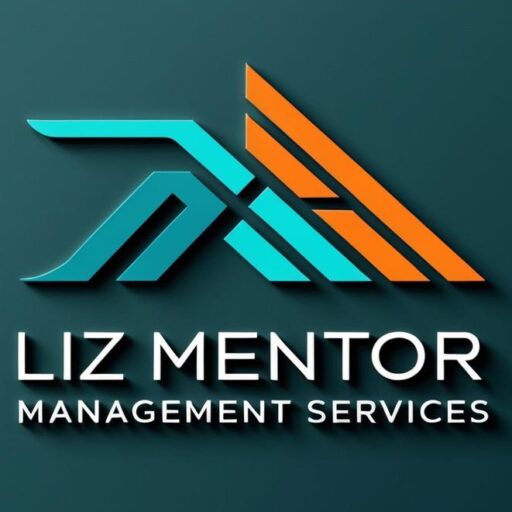Closing – Perfecting the Final Step in Call Center Interactions
In the fast-paced environment of a call center, the conclusion of a call is just as important as the greeting. Module 11, Closing, focuses on this critical stage, ensuring that each interaction leaves a lasting impression, strengthens the relationship, and maximizes outcomes. Whether closing a sale, resolving an issue, or confirming information, mastering the art of closing is essential for any call center professional.
Knowing When It’s Time to Close
One of the most common mistakes call center agents make is attempting to close too early—or too late. Closing requires a delicate balance. It’s about recognizing verbal and non-verbal cues that indicate a customer is ready to make a decision or agree to the next step. These cues can be as subtle as a shift in tone, an expression of satisfaction, or an acknowledgment of value.
Timing is critical. Closing too early risks leaving questions unanswered, creating doubt, or appearing pushy. Waiting too long, on the other hand, may frustrate the customer or miss an opportunity entirely. Module 11 emphasizes that agents must remain attentive, actively listen, and respond appropriately to each customer’s readiness.
Closing Techniques That Work
Successful closings are structured, persuasive, and customer-focused. Module 11 introduces several proven techniques that ensure consistency and effectiveness:
Assumptive Close: This approach assumes the customer is ready to proceed. Phrases like, “Shall I schedule the delivery for tomorrow?” guide the customer naturally toward agreement without pressure.
Summary Close: Recap the benefits, key points, and agreed-upon solutions before requesting confirmation. This reinforces the value proposition and reduces hesitation.
Choice Close: Presenting two options allows the customer to feel in control. Instead of asking, “Do you want this product?” an agent might ask, “Would you prefer option A or option B?”
Urgency Close: Highlighting limited availability or time-sensitive benefits can motivate decision-making. However, this must be done ethically to avoid appearing manipulative.
Question Close: Asking a clarifying question can uncover hidden objections and open the door for agreement. Questions such as, “Does this solution meet your needs today?” invite engagement and confirmation.
These techniques, when applied thoughtfully, ensure that the call ends positively, with the customer feeling informed, respected, and ready to take action.
Maintaining the Relationship
Closing is not just about ending a call successfully; it’s about building long-term relationships. Each interaction is an opportunity to enhance trust, encourage loyalty, and create advocates for your brand. Module 11 emphasizes that a strong closing should:
Reassure the customer that their needs were understood and addressed.
Confirm next steps clearly, such as delivery dates, follow-up calls, or additional resources.
Express gratitude for the customer’s time, consideration, or business.
By maintaining a relationship-focused approach, agents can turn routine interactions into meaningful experiences that encourage repeat business and positive referrals.
After the Sale: Ensuring Continued Satisfaction
The call does not truly end when the customer hangs up. Effective agents follow up on commitments, verify that solutions were implemented correctly, and provide any necessary support. This post-call attention reinforces the positive experience and demonstrates reliability.
Module 11 teaches agents to document key details, schedule follow-ups if required, and communicate any relevant updates to team members. This ensures continuity, reduces errors, and signals professionalism to the customer.
Overcoming Common Closing Challenges
Closing can be challenging, especially when customers are hesitant, uncertain, or resistant. Module 11 addresses common obstacles and strategies to overcome them:
Customer Hesitation: Use active listening to understand the concern and address it directly.
Last-Minute Objections: Anticipate potential objections and prepare responses that reaffirm value.
Time Pressure: Stay composed and focused; ensure the customer feels heard even if the call is nearing a time limit.
Emotional Customers: Remain empathetic, calm, and professional. Validating emotions often clears the path for a successful close.
By developing these skills, agents can approach each call confidently, knowing they are equipped to handle a variety of closing scenarios.
Case Study: Transforming Closings Into Success
Consider a call center team struggling with inconsistent call outcomes and low customer satisfaction scores. After focusing on Module 11 strategies, agents began practicing various closing techniques tailored to different customer personalities.
They implemented the summary close for informational calls, the choice close for sales, and the assumptive close for recurring service agreements. Post-call follow-ups became standard practice, ensuring commitments were fulfilled.
Within three months, the call center saw a significant increase in successful call resolutions, higher customer satisfaction scores, and improved repeat business. Agents reported feeling more confident, as they now had a structured approach to closing every interaction.
Key Takeaways From Module 11
Timing is everything: Learn to recognize when a customer is ready to close.
Closing techniques matter: Tailor your approach to the customer and context.
Relationship-focused closing: Every call is an opportunity to build trust.
Follow-up is crucial: Ensure commitments are met and expectations managed.
Preparation reduces stress: Anticipate objections and plan responses in advance.
Module 11 teaches that closing is not merely a transactional act; it is a strategic process that requires skill, attention, and empathy. By mastering these techniques, call center agents can enhance outcomes, foster loyalty, and create memorable customer experiences.
Conclusion
Closing a call effectively is both an art and a science. Module 11 equips agents with the tools, techniques, and strategies necessary to end calls with impact, maintain strong customer relationships, and ensure satisfaction. Whether it’s a sale, a support inquiry, or a routine service call, the principles taught in this module transform closing from a routine task into a powerful opportunity to influence outcomes positively.
For call center professionals, understanding and implementing Module 11 is a step toward becoming not just a competent agent, but a confident, persuasive, and customer-focused communicator.



